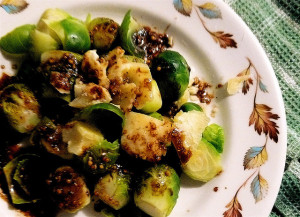When we’re young, labeling relationships is easy. This person is my friend, this person is my best friend, this person is my BEST best friend. When it’s a romantic relationship, it’s the same. You can be dating or going out. Someone is your boyfriend or girlfriend. When you’re young, finding a handy title for the people in your life isn’t that complicated.
But then I became old and began a new romantic relationship. One day, I was on the phone, adding Rich to my car insurance. I finished updating the information that they already had on file about my vehicle, and then said that I needed to add another driver to the account.
“What’s his relationship to you?” the woman on the line asked.
And I froze.
When you’re nearing forty and you’re in a new romantic relationship, there aren’t any good terms for it. Calling him my boyfriend felt a little bit too infantile and flippant. Even though we knew that we would be married at the earliest possible time, calling him my fiancé felt too formal for the relationship that we were in right at that moment. I figured calling him my lover would probably be a little too much information for an insurance customer service rep, so I just blurted out, “He’s my partner!”
I had no idea how much that title would come to mean to me.
For much of my adult life, I had certain ideas about what marriage meant based on my first marriage, and most of them boiled down to each person having a role in the relationship. I didn’t believe that there were gender roles that only men or women were designed to have, but I did see marriage as a division of labor where each person had their job to do. It was never stated explicitly that anyone was completely bound to their job, but it was very rare that help was offered beyond the scope of our regular roles. There was always a sense of equality, but never one of togetherness.
 In this second round of marriage, both my husband and I are making a concerted effort to practice more togetherness. In some regards, this is easy. Rich works from home while I write and work around the house, and when we leave, we both work at the same music store giving private lessons. We attend church together, we eat meals together, we go to the gym together. It is rare that we have more than a few hours apart in a given week. Being physically together is something that happens most of every day.
In this second round of marriage, both my husband and I are making a concerted effort to practice more togetherness. In some regards, this is easy. Rich works from home while I write and work around the house, and when we leave, we both work at the same music store giving private lessons. We attend church together, we eat meals together, we go to the gym together. It is rare that we have more than a few hours apart in a given week. Being physically together is something that happens most of every day.
But beyond that, we have built in the idea of partnership in our marriage. We have tried to eliminate the idea that there are his and her jobs at our house. There may be things that one of us does more often than the other, but we make it a point to make sure that no one feels like they are letting down the other, because we both do all of the chores at least occasionally.
I may prepare most of the meals because of the way our schedule works, but almost no weeks go by when Rich doesn’t order me to sit and relax while he cooks. Rich may be the one to do most of the trash removal, but if the garbage can is full and he’s busy, I take it out. When one of us wants to take a risk, we evaluate it together, and as often as we’re able, we encourage the other to leap.
Sometimes it can be trying, and old thought patterns can creep in. We will not trust that the other can handle our discomfort, so we stuff our feelings away rather than talking through our questions or sadness. Sometimes we’re just selfish and act out of our own self interests rather than striving to put the other first. But when that happens, we try to recognize the negative behaviors and work toward restoring the togetherness that is so important to us.
Some lists telling people how to have happy marriages will include items like, “Surprise your wife with a home cooked meal!” or “Treat your husband like he’s the king of the castle!” Those things can certainly be helpful when your life falls into a rut, when you are living parallel lives. But I’m finding more and more that the idea of having someone partner with you in all of your endeavors allows for greater creativity in the ways that you can exhibit generosity in your marriage. Togetherness can be manufactured, but it’s nice when it doesn’t have to be.
These days I have the nice, neat label of “husband” for Rich. But if you asked me, I’d still tell you that he’s my partner.
* * * * *
 “He’s My Partner” is by Alise Chaffins. Alise is a wife, a mother, an eater of soup, and a lover of Oxford commas. You can generally find her sitting behind a keyboard of some kind: playing or teaching the piano, writing at her laptop, or texting her friends a random movie quote. Alise lives in West Virginia and blogs at knittingsoul.com
“He’s My Partner” is by Alise Chaffins. Alise is a wife, a mother, an eater of soup, and a lover of Oxford commas. You can generally find her sitting behind a keyboard of some kind: playing or teaching the piano, writing at her laptop, or texting her friends a random movie quote. Alise lives in West Virginia and blogs at knittingsoul.com


